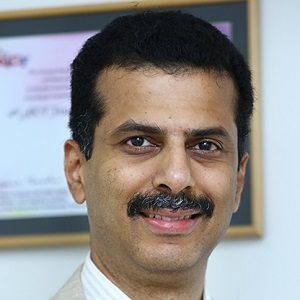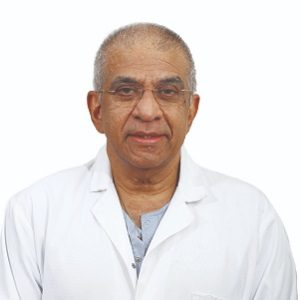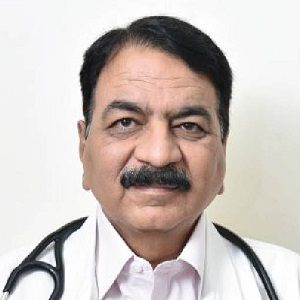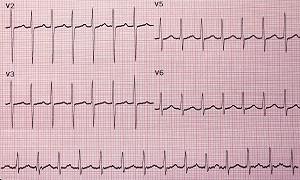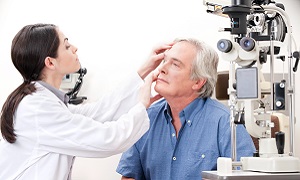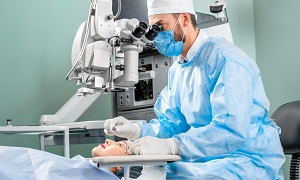Best Doctors in India for Marfan syndrome Treatment
- Interventional Cardiologist, Chennai, India
- Over 25 years’ experience
Profile Highlights:
- Dr. Prakash Chand Jain is a renowned name among cardiology experts.
- Dr. Jain specializes in Transesophageal Echocardiogram, Atrial Fibrillation, Permanent Pacemaker, and Angioplasty.
- With his 25+ years of experience, he benefitted patients from counseling, diagnosis, and treatment. Some services he offers include TMT, Ambulatory BP Monitoring, MPI Test, PET scan, Valve Repair Replacement, ASD closure, etc.
- Interventional Cardiologist, Chennai, India
- Over 15 years’ experience
Profile Highlights:
- Dr. Sai Satish is an internationally celebrated young cardiologist from Tamil Nadu with expertise in the management of heart-related problems.
- With 15+ years of experience, he assisted patients with symptomatic Aortic stenosis, blood vessel blockages, and heart failure.
- He started a series of structural heart programs for those who are executing structural heart therapies and need to advance them with the best practices. The summit drew over 300 heart surgeons and 350 cardiologists.
- Interventional Cardiologist, Chennai, India
- Over 31 years’ experience
Profile Highlights:
- Dr. G Sengottuvelu is an accomplished Interventional Cardiologist in Chennai.
- He is an expert at managing complex PCI & stenting surgeries and structural heart interventions, including percutaneous heart valve replacement & repair (TAVI / TAVR, mitral clip, etc.).
- Dr. Sengottuvelu carried out around 20000 procedures in his 25 years career. He was a pioneer of the transcatheter valve program in the Apollo Group of Hospitals in 2015, performing the first TAVR.
- Cardiac Surgeon, Cardiothoracic Surgeon, Vascular Surgeon, Chennai, India
- Over 35 years’ experience
Profile Highlights:
- Dr. Dillip Kumar Mishra is a well-known and experienced Cardiothoracic Surgeon in Chennai who has completed 35 years of specialized experience.
- The doctor gained experience working overseas in countries like Italy, Saudi Arabia, Bangladesh-Dhaka, and India.
- The doctor offers the best services to the patients, some of the prominent services include Intra – Arterial Thrombolysis, Mitral/Heart Valve Replacement, Cardio-Thoracic Surgery, bypass surgery, Radial Approach Angiography Balloon Mitral Valvuloplasty, etc.
- Cardiologist, Chennai, India
- Over 23 years’ experience
Profile Highlights:
- Dr. Pramod Kumar is a leading Cardiologist in Chennai with over 23 years of expertise.
- Dr. Pramod has completed his CT coronary angio-procedures training at UCLA in Los Angeles.
- To date, Dr. Pramod Kumar has completed over 1500 TEE & 7500+ interventional cardiology surgeries with a high success rate.
- His core areas of interest include interventional cardiology echocardiography and heart failure treatment.
- Cardiologist, Chennai, India
- Over 35 years’ experience
Profile Highlights:
- Dr. Robert Mao is a renowned cardiac surgeon in Chennai having managed heart diseases for more than 35 years.
- He provides consultation and various diagnostic tests. Some procedures and tests he performs include Angiogram, Open Heart Surgery, TMT, Color Doppler ECG, Vascular Surgery, Mitral/Heart Valve Replacement Aortic Aneurysm Surgery, etc.
- Cardiac Surgeon, Cardiothoracic Surgeon, Vascular Surgeon, Chennai, India
- Over 31 years’ experience
Profile Highlights:
- Dr. Vijay Shankar S is a senior cardio-thoracic Surgeon in Chennai having experience of more than 30 years in Cardiac Surgery.
- Dr. Vijay Shankar was a fellow Coronary Artery Surgery and Congenital Heart Surgery at the University of Wisconsin, USA.
- He provides consultation and diagnostic services for Mitral/Heart Valve Replacement, Cardiac Pacing, Invasive Cardiology, ABPM, Balloon Mitral Valvuloplasty, CT Angiography, etc.
- Cardiologist, Gurugram, India
- Over 15 years’ experience
Profile Highlights:
- Dr. Anurag Passi is a young cardiologist in Gurugram and is well-known for his meticulousness, precise diagnosis, and compassionate care of patients.
- He is proficient in performing procedures like Primary Angioplasty, Transradial Intervention, Pacemaker, ICD and CRT implantation, and Complex coronary interventions (Unprotected Left Main, Bifurcation, and CTO).
- Presently, he is practicing as a Senior Consultant of Cardiology at Fortis Memorial Research Institute in Gurugram.
- Cardiologist, Gurugram, India
- Over 24 years’ experience
Profile Highlights:
- Dr. (Col) B Kalra is one of the best cardiologists in Gurugram, with nearly two decades of experience in Cardiology.
- Due to different pieces of training, Dr. Balbir Kalra has accomplished expertise in Clinical, Invasive, and Non-Invasive Cardiology.
- Cardiologist, Gurugram, India
- Over 15 years’ experience
Profile Highlights:
- Dr. Ashish Gupta is a renowned cardiologist in Gurugram with expertise in noninvasive and interventional cardiac procedures.
- He performed several life-saving primary angioplasties in acute heart attacks, complex heart interventions, and ICD/ CRT/ pacemaker implantations with a high success rate.
- Some of the services available with the doctor include PET scan, Nuclear Thallium Test, TMT, Holter monitoring, echocardiography, etc.
Best Hospitals in India for Marfan syndrome Treatment
Marfan Syndrome
Marfan syndrome is an inherited disorder, which affects the connective tissue in the body, which gives support and strength to various parts of the body such as cartilage, blood vessels, etc. This syndrome usually affects the eyes, blood vessels, the heart and the skeleton.
Usually tall and skinny people are victims of this syndrome. They might also have disproportionately long arms, fingers, legs and toes. Sometimes this ailment can be mild and at other times, quite severe. The large blood vessel which carries blood from your heart to the rest of the body is called the aorta. If this gets affected, your condition might be life-threatening.
Treatment for Marfan syndrome usually includes medications to help keep the blood pressure low, to reduce strain on the aorta. It is also important to monitor it regularly and check for damage progression. Most people suffering from this ailment eventually require preventive surgery for repairing the aorta.
Symptoms of Marfan Syndrome
These signs and symptoms of this illness can vary greatly, even among family members. Though some people experience only mild effects, others can develop life-threatening complications. In many cases, the disease also gets worse as one age.
Some of the symptoms of Marfan syndrome:
- Tall and Slender Build
- A breastbone protruding outward or dipping inward
- Disproportionately long arms, fingers, and feet
- Heart murmurs
- Extreme nearsightedness
- Abnormally curved spine
- Flat feet
Causes and risk factors
Marfan syndrome is caused by a change in the gene which controls how the body makes fibrillin, which is an essential part of connective tissue that can help to make it strong and elastic.
Marfan syndrome happens equally among both genders. In most cases, this ailment is inherited from a parent. People with this ailment have a 50% risk of passing down to their offspring. In some people with this syndrome, the gene changes without a clear cause.
Diagnosis of Marfan Syndrome
Marfan syndrome can be quite challenging for doctors to diagnose, as many connective tissue disorder have similar signs and symptoms. Even among some members of the same family, the signs and symptoms of Marfan syndrome vary widely, both in features as well as severity.
Certain combinations of symptoms and family history need to be presented to confirm a diagnosis of Marfan syndrome. In some cases, a person might have some features of Marfan syndrome, though not enough of them for a diagnosis of the syndrome.
Heart Tests
When a doctor suspects Marfan syndrome, usually the first test that is recommended is an echocardiogram. With the use of sound waves, this test captures real-time images of your heart in motion. It checks the condition of your heart valves as well as the size of your aorta. There are also other heart imaging options such as computerized tomography scans as well as magnetic resonance imaging.
If you are diagnosed with Marfan syndrome, regular imaging tests will be required for monitoring the size and condition of your aorta.
Eye Tests
Eye exams that might be needed can include:
- Slit-lamp exam- This test checks for lens dislocation, a detached retina as well as cataracts. For this exam, your eyes will have to be dilated as well.
- Eye pressure test- To check for signs of glaucoma, your eye doctor might measure the pressure inside your eyeball by touching it with some kind of special tool. Usually, before this test, numbing eye drops are used.
Genetic Testing
Genetic testing is also often used for confirming the diagnosis of Marfan syndrome. If a Marfan mutation is found, family members can also be tested, to see if they are affected as well. You might consider talking to a genetic counselor, before you start a family, to see your chances of passing on Marfan syndrome to your future children.
Treatment options for Marfan Syndrome
There is no known permanent cure for Marfan syndrome and the treatment focuses on preventing the various complications of the ailments. For achieving this, you need to be checked regularly for signs that the damage caused by the disease is progressing.
In the past, people suffering from Marfan syndrome usually died young. But with modern treatment as well as regular monitoring combined, people suffering from this syndrome can live up to a normal life span.
Medications
Therapy
Surgery and Other Procedures
Depending upon the signs and symptoms, procedures might include:
Aortic repair

If you aorta’s diameter reaches around 2 inches or if it enlarges quickly, your doctor might recommend an operation for replacing a portion of your aorta with a synthetic tube. This will help to prevent a rupture which can be life-threatening. Your aortic valve might also require replacement.
Scoliosis treatment
When there is significant scoliosis, a consultation with a spine expert is important. In some cases, bracing and surgery might be needed.
Breastbone corrections
For correcting the appearance of a sunken or protruding breastbone, one can choose to go for surgery. However, one should remember that these operations are considered to be for cosmetic purposes and therefore, your insurance may not cover your costs.
Eye Surgeries
Complications
Marfan syndrome can affect several parts of the body, leading to various kinds of complications, some of them including-
- Damage to the aorta: This can be considered one of the biggest threats of Marfan syndrome. Your aorta is the artery that carries blood from your heart to the rest of your body. Marfan syndrome can break open the aorta’s inner layers and cause dissection or bleeding in the wall of the vessel. Aortic dissection might be deadly. You might also require surgery for replacing the aorta’s affected parts.
- Mitral valve prolapse: Some people who suffer from Marfan syndrome also have a condition that causes billowing of the heart valve. This may be linked with uneven or rapid heartbeats as well as shortness of breath. It might need surgery.
- Lens dislocation: The lens in our eye, which focuses on your vision, might move out of place, which leads to a condition called ectopia lentis.
- Glaucoma or cataracts: Marfan syndrome can increase your chances of getting eye ailments like cataracts or glaucoma at an early age.
- Skeletal issues: People with this syndrome are also more likely to have a curved spine, unusual ribs, back pain and foot pain.
- Pregnancy complications: Because pregnancy increases the amount of blood in the body and aorta which is weakened by Marfan syndrome is at a higher risk of a rupture or dissection during pregnancy.



